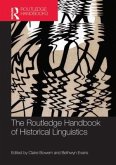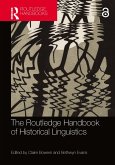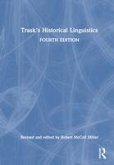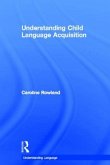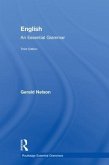Understanding Language Change offers a complete introduction to historical linguistics. The book takes a step-by-step approach, first by introducing concepts through English examples and building on this with illustrations from other languages. Key features of this introductory text include up to date and recent case studies at the end of each chapter; chapter summaries and exercises that feature a wide range of languages; coverage of application of historical linguistics in each chapter; and a glossary of terms. This book is essential reading for any students studying Historical Linguistics for the first time.
"An important addition to this excellent series, covering fundamentals in the 'what' of language change such as sound change, changes in the lexicon and syntactic change, as well as the 'why' including contact linguistics and the influence of language policy, and the 'how' including diffusion and spread at multiple social levels. Each chapter comes with a rich set of data-driven problem solving exercises as well as a searching research question."
Andrew Hippisley, University of Kentucky, USA
"Drawing upon their own research, and concentrating upon English phenomena without ever losing sight of issues in other language communities, Kate Burridge and Alexander Bergs have packed a wealth of insights into a volume which is sure to make historical linguistics, in its broadest sense, both relevant and attractive to students, other linguists and curious laypeople alike. With its discussions and rich array of activities, this is a book which can be recommended for any undergraduate or MA programme in English Language or Linguistics."
Anthony Grant, Edge Hill University, UK
Andrew Hippisley, University of Kentucky, USA
"Drawing upon their own research, and concentrating upon English phenomena without ever losing sight of issues in other language communities, Kate Burridge and Alexander Bergs have packed a wealth of insights into a volume which is sure to make historical linguistics, in its broadest sense, both relevant and attractive to students, other linguists and curious laypeople alike. With its discussions and rich array of activities, this is a book which can be recommended for any undergraduate or MA programme in English Language or Linguistics."
Anthony Grant, Edge Hill University, UK



